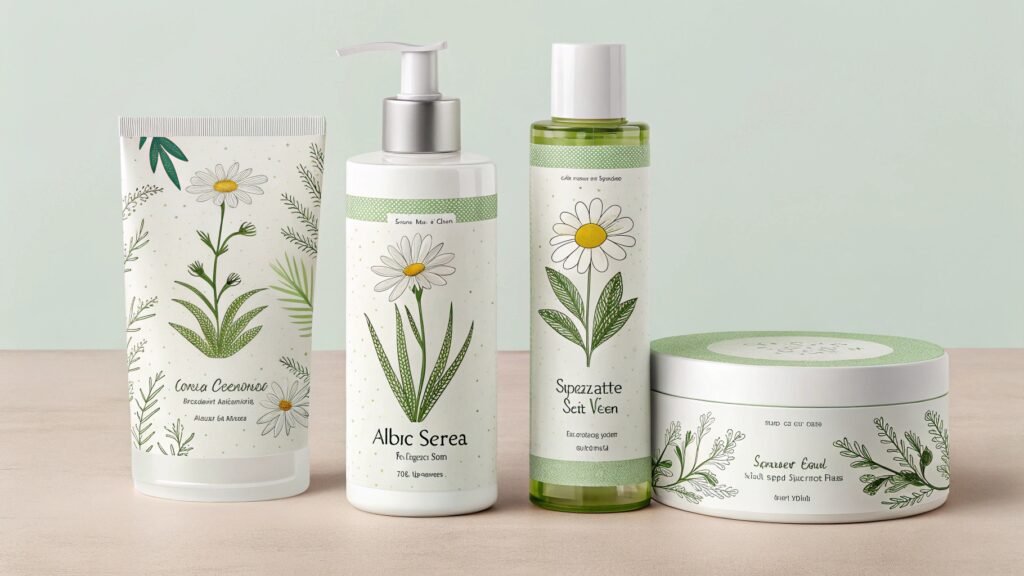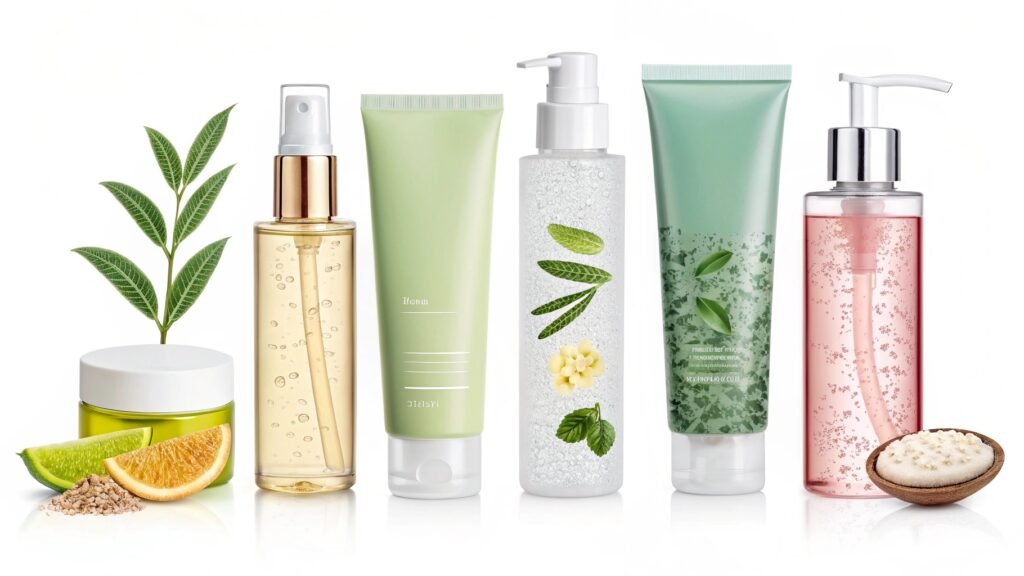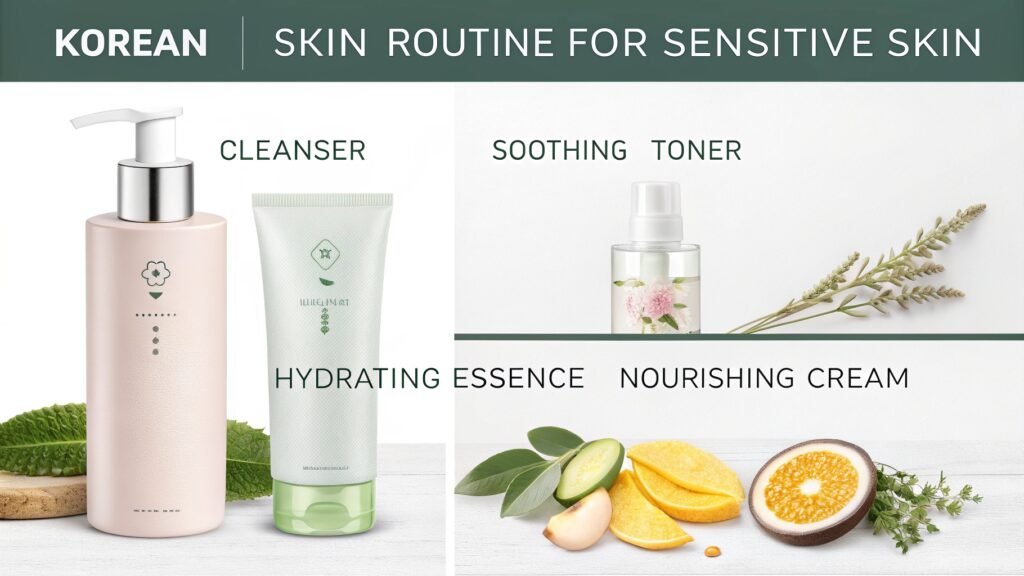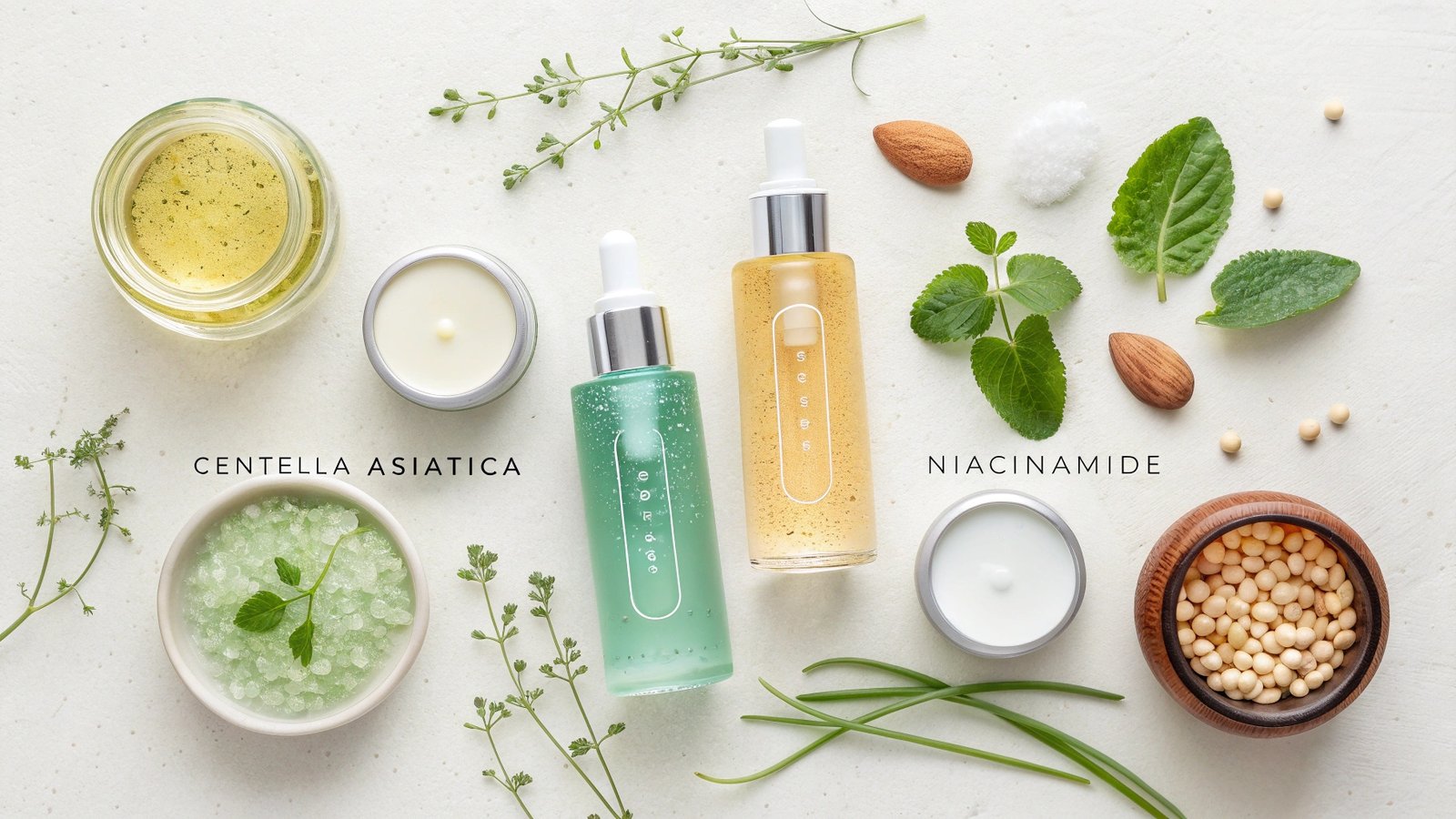Is Korean skin care good for sensitive skin? Discover how K-beauty’s gentle, hydration-first philosophy benefits reactive or irritated skin.
This detailed guide explores calming Korean ingredients, best product recommendations, what to avoid, and a sample routine.
Whether you’re dealing with redness, sensitivity, or dryness, learn how Korean skincare can help you achieve healthier, calmer skin with every step.
If you’ve ever searched for gentle, glowing, and glass-like skin, you’ve likely come across Korean skin care affectionately known as K-beauty. It has taken the global beauty world by storm with its multi-step routines, innovative ingredients, and focus on hydration and balance. But one question keeps popping up:
Is Korean skin care good for sensitive skin?
The short answer? Yes—if you choose the right products.
In this comprehensive guide, we’ll explore:
- Why Korean skin care is suitable for sensitive skin
- Key ingredients and product types to look for
- What to avoid
- The best Korean skin care products for sensitive skin
- A simple routine to help reduce redness, inflammation, and irritation
Let’s discover how the gentle philosophy of K-beauty can transform your sensitive skin journey.

Before diving into products, it’s important to understand what sensitive skin actually means.
- Redness and blotchiness
- Tingling, burning, or stinging when applying products
- Flaky or dry patches
- Prone to irritation from fragrance, harsh ingredients, or weather changes
Sensitive skin is often a weakened skin barrier issue, meaning your skin doesn’t do a good job of protecting itself from irritants or retaining moisture.
Korean skin care is based on the principles of:
- Hydration before exfoliation
- Gentle formulations
- Layering lightweight products
- Barrier-first philosophy
Unlike Western skin care, which often targets quick results using strong actives, Korean products are designed to nurture the skin over time, making them ideal for sensitive and reactive skin types.
Many K-beauty products feature ingredients like:
- Centella Asiatica (Cica) – Anti-inflammatory and healing
- Snail Mucin – Hydrating and barrier-repairing
- Green Tea Extract – Calms irritation and reduces redness
- Mugwort – Anti-bacterial and gentle on inflamed skin
- Madecassoside – A compound derived from Centella, reduces redness
- Panthenol – Restores hydration and soothes sensitive areas
Instead of harsh physical scrubs, K-beauty offers:
- LHA (Lipo-Hydroxy Acid) – Mild exfoliant for sensitive skin
- PHA (Polyhydroxy Acid) – Larger molecule that works on the skin’s surface without irritation
Korean skin care relies on:
- Essences
- Ampoules
- Light moisturizers
These hydrate the skin gradually without overwhelming it, unlike thick Western creams.
K-beauty cleansers often maintain a low pH (~5.5), which is closer to your skin’s natural acid mantle. This keeps your skin barrier healthy and reduces irritation.

Here are top K-beauty picks that are gentle, hydrating, and ideal for reactive skin.
- Low-pH, ultra-gentle foam
- Contains panthenol and madecassoside
- Balances and cleanses without stripping
- Ideal for redness-prone skin
- Fragrance-free and deeply hydrating
- Calms inflammation without clogging pores
- Nourishes with rice extract
- Soothes and strengthens sensitive skin barriers
- High concentration of Centella Asiatica
- Reduces redness and inflammation
- Lightweight and ideal for redness or rosacea
- Balances hydration and oil
- A cult favorite for restoring sensitive skin
- Non-comedogenic and deeply soothing
- Lightweight gel-cream texture
- Designed specifically for irritated, acne-prone, or red skin
- Broad spectrum SPF 50+
- Calms with birch sap and doesn’t irritate
- Non-greasy, intensely hydrating
- No white cast or stinging sensation

- Gentle low-pH cleanser
- Hydrating toner (fragrance-free)
- Soothing ampoule or serum (Centella or panthenol-based)
- Light moisturizer
- Fragrance-free sunscreen
- Gentle cleanser (double cleanse only if wearing makeup)
- Toner
- Optional calming essence (like mugwort or snail mucin)
- Soothing ampoule/serum
- Moisturizer with barrier-repair ingredients
Optional: Use a sheet mask 2–3 times a week for added hydration and comfort.
Not all K-beauty products are perfect for sensitive skin. Avoid:
- Fragrance-heavy formulas (look for “unscented” or “fragrance-free”)
- Essential oils (like citrus or lavender)
- Alcohol denat. in toners or serums
- Excessive exfoliating acids (especially AHA/BHA in high concentrations)
Always do a patch test when trying new products.
Yes, many K-beauty products include calming ingredients like Centella Asiatica, mugwort, and green tea, which are great for redness-prone or rosacea-affected skin.
Not always, but sensitive skin is more likely to react to fragrances. It’s safest to choose fragrance-free or unscented versions.
Results can take 4–6 weeks depending on your skin’s sensitivity and the ingredients used. K-beauty is about gradual improvement, not instant change.
Yes, as long as you avoid layering too many actives (like retinol and AHAs) together. Always keep routines simple and hydrating when in doubt.
Many brands like Etude House, Klairs, COSRX, and Dr. G formulate specifically for sensitive skin types and often conduct patch tests.
So, is Korean skin care good for sensitive skin?
Absolutely—especially if you choose products with:
- Barrier-supporting ingredients
- Low pH and fragrance-free formulas
- Calming botanical extracts
K-beauty focuses on nourishing rather than stripping, making it one of the most compatible skincare approaches for sensitive skin worldwide. With consistent use, the right products can help reduce irritation, even out redness, and strengthen your skin’s natural defenses.
Your skin doesn’t need more products it needs the right ones.
What Are the Best Skin Care Products for Oily Skin? | The Ultimate Guide to Clearer, Balanced Skin
Summer Nail Polish Colors 2025: Hottest Shades to Brighten Your Look
Fruit Peel Manicure For Summer Nails: The Fresh Trend Your Hands Deserve
